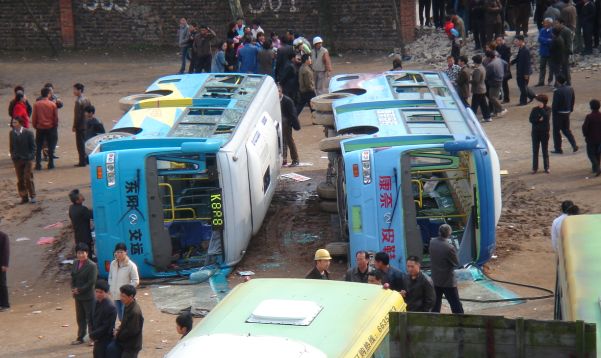What happens when ordinary people speak up in acts of resistance? What about when other people tell those stories of protest on the world’s most visited encyclopedia?
Dr. Jennifer Chun’s course at UCLA explores Protest and Social Change in East Asia. “Protests have taken the form of historic mass mobilizations as well as everyday acts of protest that are often unnoticed and go unrecorded,” the course description reads. “This seminar explores how ordinary people engage in protest to express discontent and bring about social change.”
As part of the course last term, Dr. Chun assigned students to contribute content to Wikipedia about course-related topics. That way, students could delve deep into a topic, solidifying learnings for themselves while at the same time sharing that knowledge with the world. The 16 students in the course added more than 33,000 words to Wikipedia, creating 11 new articles and contributing to 4 existing ones. They also uploaded great images to articles through Wikimedia Commons, Wikipedia’s sister site for media.
One student created an article about the anti-incinerator movement in China. The movement has roots in the 1990s and continues today to reform China’s waste-to-energy practices, which present environmental and health concerns. The Chinese government has continued to construct new incinerators nationwide, but protests against them persist. The Wikipedia article is more than 4,000 words of well-cited information, including the history of the movement, key issues and participants, protest strategies, and government response.

Photo by Leah Temper, Daniela del Bene and Joan Martinez-Alier. CC BY-SA 3.0, via Wikimedia Commons.
In the Huashui protest of 2005, elderly residents in and around Huashui, a town in the Zehjiang Province of China, protested a collection of 13 polluting factories in the Zhuxi Chemical Industrial Park. Despite local government attempts to suppress their efforts, they were successful in shutting down 11 of the 13 factories. If you want to read 3,000 words of well-researched background, head on over to the brand new article that another student in this course created last term.
Just as it’s often everyday people who elicit societal change, everyday people make Wikipedia the great resource that it is. It’s the generous acts of volunteers that make all of that knowledge verifiable and accessible to the public. When students become a part of an ecosystem of knowledge creators and fact-checkers, they feel like what they’re doing matters. And they learn important skills in the process.
Interested in teaching a Wikipedia writing assignment? We’ve got the assignment templates and tools you need to do it! No previous experience with Wikipedia necessary. Visit teach.wikiedu.org for info.
